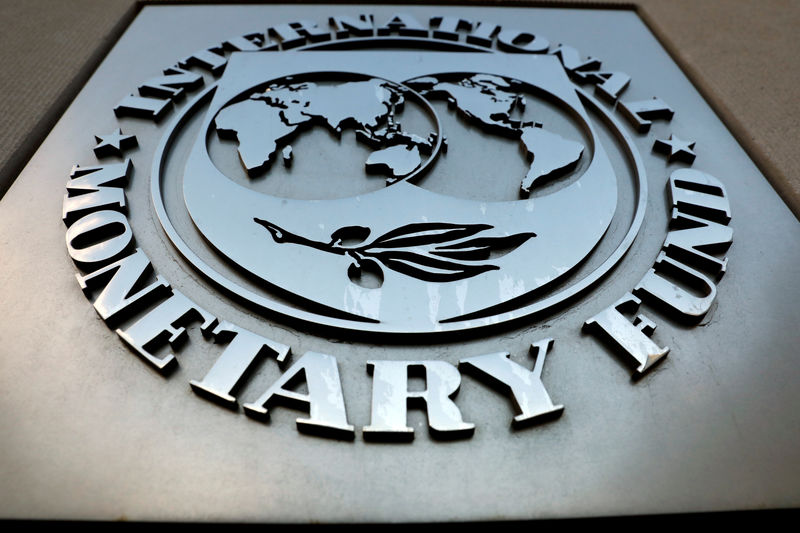By Megan Davies and Rodrigo Campos
WASHINGTON (Reuters) - The International Monetary Fund's current debtor-creditor balance gives the United States an outsized weight in the voting, which translates into Washington holding roughly 25 times the voting power of Argentina, the bank's biggest debtor.
Here is how the creditors and debtors stack up as the world's economic heavyweights converge in Washington for the biannual International Monetary Fund meetings, under the leadership of new Managing Director Kristalina Georgieva, who took the helm of the lender on Oct. 1:
VOTING POWER
The United States represents the largest voting bloc on the IMF board, with 16.5%. Other members with large voting shares are Japan, with 6.2%, Germany, 5.3%, and France and the U.K. with 4% each.
(GRAPHIC - The U.S. has the biggest share of votes at the IMF: https://fingfx.thomsonreuters.com/gfx/editorcharts/IMF-WORLDBANK-FUNDING/0H001QXDE8Y9/eikon.png)
ARGENTINA DWARFS LENDING
The IMF has a total of $102.8 billion credit outstanding, of which by far the most is extended to Argentina, with $43.9 billion. After Argentina, the next biggest are: Egypt, with $11.8 billion, Ukraine with $9.4 billion, Greece with $9.2 billion and Pakistan with $6.4 billion.
(GRAPHIC - Argentina's debt to the IMF dwarfs other countries: https://fingfx.thomsonreuters.com/gfx/editorcharts/IMF-WORLDBANK-FUNDING/0H001QXDC8Y3/eikon.png)
CRUNCH TIME
Some countries with IMF loans face challenging repayment schedules and have implemented austerity measures that have proven unpopular.
In Argentina, the implementation of the IMF's program has all but cost President Mauricio Macri a shot at reelection later this month as austerity measures are blamed for a rise in poverty, while a lack of trust from investors has sent financial markets reeling and the peso currency to historic lows.
Argentina's schedule for debt repayment shows whoever wins the presidency faces an uphill battle with an economy that is expected to continue in recession in 2020. The presidential election favorite has already talked about a renegotiation with the Fund.
Egypt signed a three-year, $12 billion deal with the Fund that ends next month. Protests last month in Cairo and other cities were sparked in part by Egyptians' anger at government, after three years of austerity linked to the IMF loan.
Egypt is discussing possible further assistance from the Fund.
In Ecuador, days of violent protests against an IMF-backed law that cut expensive fuel subsidies forced the government to backtrack and reinstate them. The Fund said on Wednesday it will continue to work with the Ecuadorian government "in the context of the current program."

(GRAPHIC - Argentina's debt payments balloon in 2022 Image: https://graphics.reuters.com/IMF-WORLDBANK-FUNDING/0100B2H11RS/DEBT-PAYMENT.jpg)